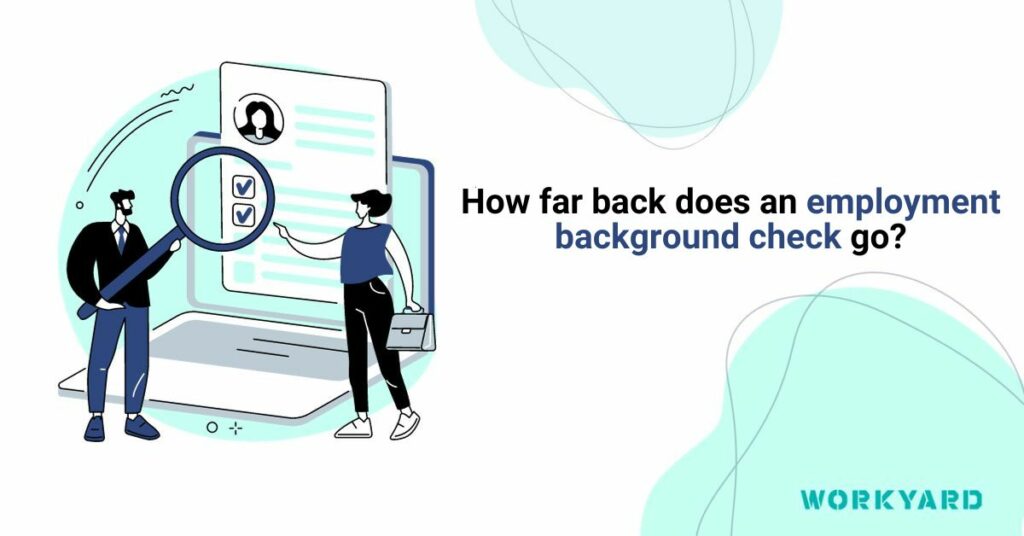When contemplating the duration of an employment background check, a common timeframe is 7-10 years. This timeframe aligns with the following:
- Criminal History: Most background checks encompass a 7-10 year window for criminal history, enabling employers to evaluate recent activities and patterns pertinent to candidate suitability and potential risks.
- Employment Verification: For employment history verification, a 7-10 year timeframe typically suffices, capturing recent professional engagements and delineating candidates’ career trajectories.
Variability and Influencing Factors
While a 7-10 year timeframe serves as a general benchmark, variability and influencing factors warrant attention:
- Jurisdictional Differences: Specific jurisdictions may impose limitations or guidelines governing the duration considered within background checks, necessitating awareness and adherence to regional regulations.
- Positional Relevance: Depending on the nature of the position, employers may opt to delve further back into candidates’ histories, especially for roles requiring extensive experience, specialized skills, or heightened security clearances.
- Employer Discretion: Employers retain discretion regarding background check parameters, tailoring investigations based on organizational policies, industry standards, and role-specific requirements. Consequently, candidates should acquaint themselves with prospective employers’ practices and expectations, fostering transparency and alignment.
Candidates benefit from transparency regarding background check expectations, enabling proactive preparation, addressing potential concerns, and highlighting relevant experiences and accomplishments.
Employers uphold compliance by adhering to jurisdictional regulations, industry standards, and organizational policies, ensuring thorough due diligence while respecting candidates’ rights and privacy.
To summarize, the scope of an employment background check typically spans 7-10 years, encompassing criminal history and employment verification. However, some variability can occur based on jurisdictional regulations, positional relevance, and employer discretion.

